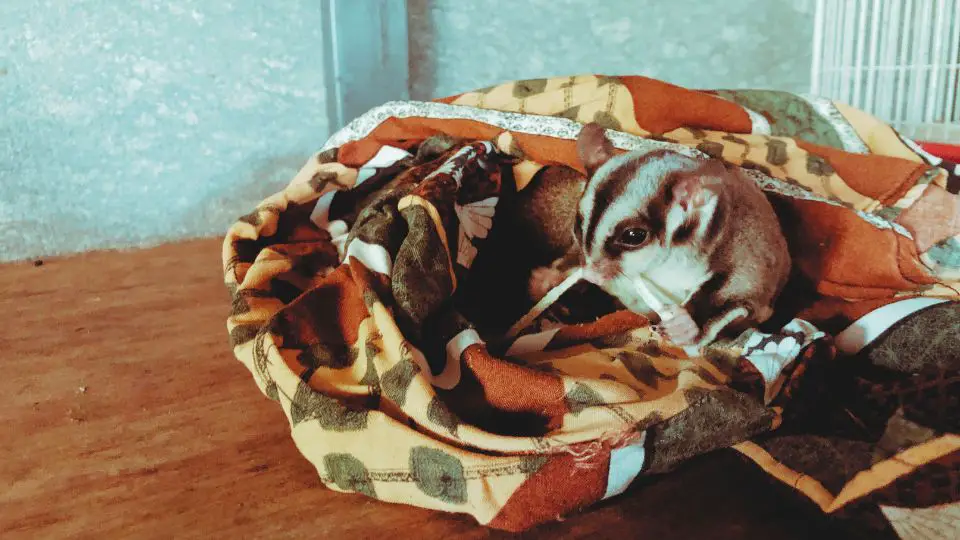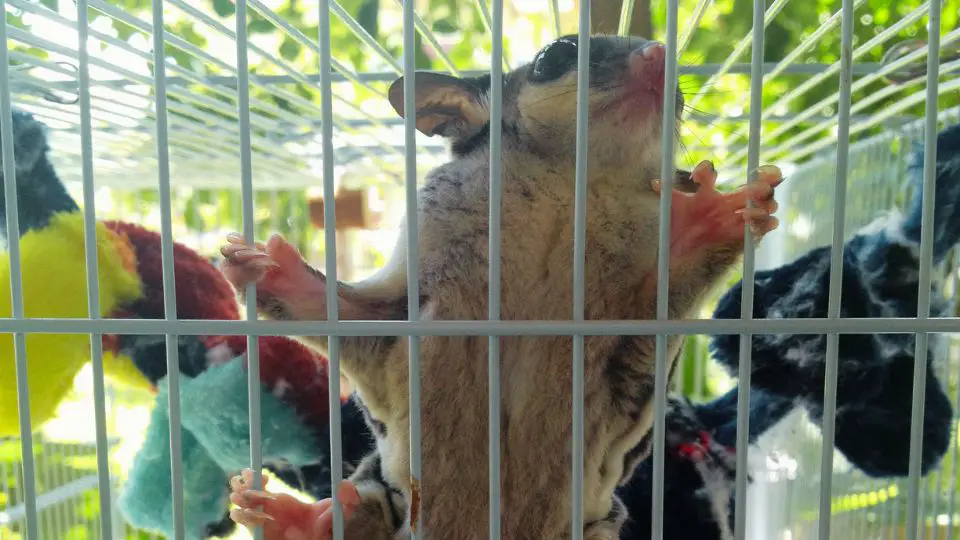If your sugar glider suddenly begins sneezing, you should check its enclosure for allergens and try to identify what is causing the problem. Often, allergens are caused by things in the enclosure, such as fabric softener or detergent.
If you suspect that your glider is allergic to something in its enclosure, try removing those items. Changing the detergent or avoiding fabric softener may also help reduce sneezing.
Why Do Sugar Gliders Sneeze?
Although sugar gliders are not susceptible to colds or the flu, they can develop similar illnesses that can be caused by their environment. When your glider sneezes, it may be an allergy or upper respiratory infection. There are several things you can do to help alleviate the problem. Here are some tips:
Allergens in the enclosure
Allergens are the most common cause of sneezing in sugar gliders. The most common allergens are dust, pollen, and fabric softener or detergent. If you think your glider is allergic to something in its enclosure, try changing the type of detergent you use or avoiding fabric softener.
A cold or other respiratory infection
Another possible cause of sneezing is a cold or other respiratory infection. If your glider has a cold, you may notice other symptoms, such as a runny nose, watery eyes, or lethargy. If you think your glider has a cold or other respiratory infection, take it to the vet for treatment.
Nasal mites
Nasal mites are tiny parasites that live in the nasal passages of sugar gliders. They my be the cause of sneezing in sugar gliders. If your glider has nasal mites, it will sneeze frequently and have a runny nose. Nasal mites are treated with medication, so take your glider to the vet for treatment.
Dust or dirt in the nose
Sometimes, sugar gliders can get dust or dirt in their noses, which can cause them to sneeze. If you think your glider has dust or dirt in its nose, try using a saline solution to flush it out.
Is your sugar glider sick?
If you notice your sugar glider sneeze, it is a warning sign of a more serious ailment. Gliders often sneeze into their hands while grooming, and sneezing excessively is an indication that a medical problem is brewing.
Abscesses can develop on any part of a glider’s body, but they are most likely to form in the head and teeth area. The infection grows quickly, so you should contact a veterinarian as soon as possible.
But don’t get worry too soon because sneezing is usually just one symptom of a respiratory infection, so be on the lookout for other signs as well. If your sugar glider is also wheezing or making strange noises when he breathes, has discharge coming from his nose or eyes, or seems to be having trouble breathing, these could all be indications that he is sick.
However, if your sugar glider is only sneezing and there are no other symptoms present, it’s probably nothing to worry about and he will likely be fine.
Can sugar gliders get respiratory infection?
Sugar gliders are very susceptible to pneumonia and other respiratory infections. Pneumonia is often caused by drafts, improper temperatures, viruses and bacterial infections. Wheezing, whistling or general illness-type symptoms are common.
However, some gliders show no respiratory distress symptoms. Early diagnosis and treatment is essential for a full recovery. Sugar gliders are very delicate creatures, and pneumonia can be fatal if left untreated.
With prompt veterinary care, however, most sugar gliders make a full recovery and go on to enjoy a long and happy life.
Upper Respiratory Infection
If you own a sugar glider, it’s important to be aware of the risk of upper respiratory infections. These infections are commonly caused by drafts, improper temperatures, viruses and bacterial infections. For example, pneumonia is a common respiratory infection in sugar gliders, and it can be fatal if left untreated.
Symptoms can include runny nose, watery eyes, sneezing and snoring. If your sugar glider shows any of these symptoms, it’s important to take them to the vet for a check-up. There are a number of different treatments available for upper respiratory infections, so the sooner you get your sugar glider checked out, the better.
Can sugar gliders have allergies?
Just like any other animal, sugar gliders can develop allergies to certain substances. The most common triggers are food allergies, which can cause digestive upset, skin irritation, and respiratory problems.
In some cases, sugar gliders may also be allergic to their bedding or the materials in their cage. If you suspect that your sugar glider has an allergy, remove those materials from their cage and see if it solved their problem. With the right care, your sugar glider can enjoy a healthy life despite their allergies.
Are sugar gliders hypoallergenic?
Although most of the information we have says that sugar gliders are hypoallergenic, they can certainly trigger some serious allergies in people who are sensitive to them. Allergens present in their dander, saliva, and urine can cause reactions ranging from mild discomfort to full-blown anaphylactic shock.
Thankfully, though, it’s possible that someone with an allergy to another mammal may not have any reaction to a sugar glider. Quite often people with allergies can find an excellent pet in sugar gliders. So if you’re considering getting one of these little guys as a pet, it’s worth doing some research to see if you might be allergic to them first.
Do sugar gliders get sick easily?
Sugar gliders are relatively healthy animals, but like all animals, they can get sick. The most common health problems for sugar gliders include gastrointestinal issues or respiratory infections, and, when they are babies, sugar gliders are susceptible to dehydration and hypothermia.
However, if you take good care of your sugar glider and take them to the vet for regular check-ups, then they should be able to live a long and healthy life. Additionally, there are some things you can do to help prevent your sugar glider from getting sick, such as feeding them a healthy diet and keeping their habitat clean.
By taking these precautions, you can help ensure that your sugar glider stays healthy and happy for years to come.
Conclusion
In conclusion, sugar gliders are relatively healthy animals, but like all animals, they can get sick. The most common health problems for sugar gliders include gastrointestinal issues or respiratory infections, and, when they are babies, sugar gliders are susceptible to dehydration and hypothermia.
If you want to take good care of your sugar glider, you should take them to the vet for regular check-ups. Additionally, there are some things you can do to help prevent your sugar glider from getting sick, such as feeding them a healthy diet and keeping their habitat clean.
By taking these precautions, you can help ensure that your sugar glider stays healthy and happy for years to come.







